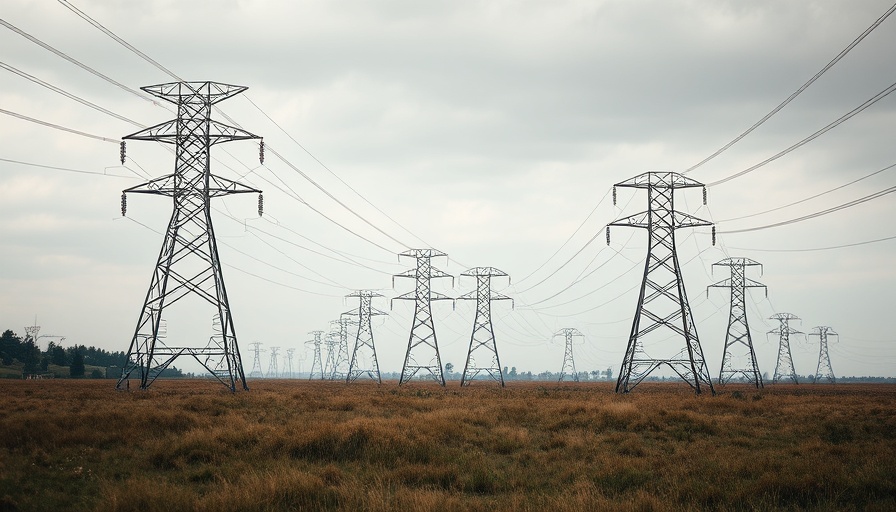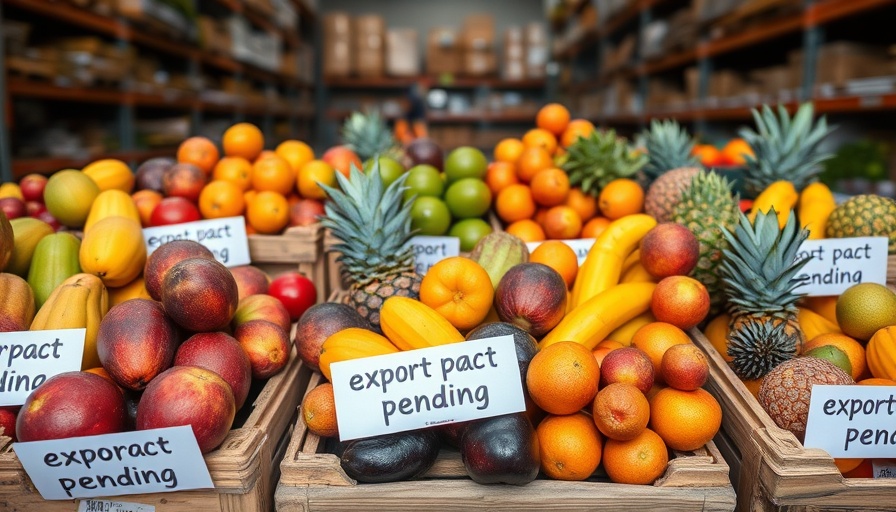
Southern Africa's Energy Paradox: Rich Resources, Critical Shortages
Southern Africa is endowed with abundant natural resources, yet it faces a significant electricity deficit that jeopardizes economic growth and sustainability. Despite being rich in hydroelectric potential, marked by developments like Cahora Bassa, the region’s electricity supply remains inconsistent and inadequate. This dichotomy poses critical questions: How can the region leverage its resources to boost energy security?
The Hydro Boom: An Untapped Goldmine
The remark that “hydro is the new gold” has gained traction in discussions about sustainable development in the region. Infrastructure such as the Cahora Bassa dam, which has been pivotal in generating electricity, underscores hydroelectric power's capacity to stabilize energy supply against the backdrop of emerging renewable technologies. By investing in and developing hydro assets further, Southern Africa could significantly enhance energy reliability, supporting not just local economies but attracting investment in tech sectors like IoT and renewable energy.
Energy Security: A Stepping Stone to Digital Transformation
With reliable electricity, the digital landscape could flourish. Executives and tech innovators would benefit from integrating technologies such as AI and cloud computing, which are highly dependent on stable power sources. Without addressing the power shortfall, advancements in automated processes, and the deployment of smart grids to boost the efficiency of energy consumption remain hindered. For instance, regions with robust energy sectors could turn into innovation hubs, enhancing their global competitiveness.
The Road Ahead: Investments and Policies for Change
Addressing the energy deficit requires substantial investment and a shift toward resilient governance. The Southern African Development Community (SADC) must prioritize energy policies that facilitate investment in hydro capabilities and maintenance of existing facilities. Additionally, incorporating public-private partnerships could streamline funding for necessary infrastructure improvements, which in turn could reduce dependency on traditional energy sources, pushing for a green transition.
Innovative Solutions: The Role of Tech Startups
The growing landscape of tech startups is essential for solving the energy crisis. Many entrepreneurs in the region are innovating in energy efficiency technologies and exploring blockchain solutions for energy distribution. Through collaborative platforms and enhanced connectivity, these startups can optimize energy management systems, paving the way for a modern energy economy.
Considering the Global Context: Lessons from Successful Models
Globally, regions that have successfully navigated energy challenges offer valuable insights. Nordic countries, with their focus on renewables and government-supported initiatives for energy innovation, serve as a practical model. Southern African leaders are encouraged to explore sustainable energy practices from these examples to enhance local energy solutions, particularly scaling up digital payments for energy services and smart devices that can smoothen energy consumption. Drawing from these international case studies, Southern Africa can reinvent its narrative from one of energy poverty to reliability and innovation.
Call to Action: Building a Sustainable Energy Future
Now is the time for executives and decision-makers to advocate for systemic changes that will lead to a sustainable energy future in Southern Africa. By fostering strategic alliances, investing in clean energy technologies, and promoting local startups, we can create a robust and dynamic energy market conducive to growth and innovation. It’s not just about secure energy—it's about building a future where technology and sustainability coexist, driving the region toward a digitally inclusive economy.
 Add Row
Add Row  Add
Add 




Write A Comment